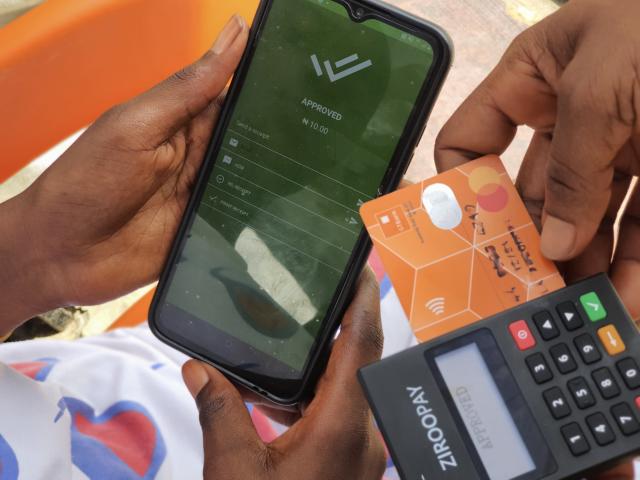ZirooPay secures $11.4M to make its mobile POS services available for retailers across Nigeria

ZirooPay, Lagos- and Helsinki headquartered fintech start-up has secured $11.4 million in a Lagos-based VC fund, Zrosk Investment Management-led Series A round to expand its payment infrastructure, accelerate growth, and hire more staff, with participation from other private and institutional funds such as Fedha Capital and Exotix Advisory.
Existing investors; Nordic venture fund Inventure returned for the round. Individual investors like Petri Kivinen, the former managing director at Deutsche Bank, Morgan Stanley, and Renaissance Capital; Abiodun Ajai, the director, Sub-Saharan Africa of Bank of America; Kurt Bjorklund, managing partner at Permira; Stephane Kurgan, venture partner at Index Ventures; and Jonas Dromberg, former Bureau chief at Bloomberg, also participated.
According to data from Statista, Point of Sales (POS) terminals in Nigeria have increased significantly from 150,000 in 2017 to 543,000 in April 2021 and the volume of POS payments in the country has also increased tremendously during the period, hitting over 500 billion as of May.
POS machines are used in Nigeria to handle card payments at retail outlets and for agency banking, a branchless banking system in which agents operate as human ATMs. While terminals have a variety of suppliers (banks and fintechs) and functionality, they all work largely online, with only a few having offline capabilities.
In 2014, Omoniyi A. Olawale founded ZirooPay. It began in Helsinki and was later launched in Nigeria, where it has developed tremendously in just three years of existence. Over 15,000 retailers utilize the company’s POS machines and mobile app, according to the company. Within three years, these merchants handled $500 million, or a 5,000 percent increase over 10 million transactions.
ZirooPay began as an offline POS payment platform to reduce transaction failures due to bad internet connections by developing its “in-house technology” that allows them to handle events in real-time without the usage of the internet.
“As a result, the solution was created around that significant difficulty; as a result, we can deliver a transaction success rate of 95 percent, compared to less than 50 percent in the market.,” Olawale said.
Aside from POS, ZirooPay offers several other features, such as sales tracking and business operations management.
“Think about everything that the cash registers seen in big supermarkets can do; with an Android application and a mobile point-of-sale card reader, we provide that same functionality to small businesses. We’ve been able to see over 70% of our users migrate from paper-based accounting to depend on the in-app sales accounting within three months of onboarding.” He added.
To build up an omnichannel system for retailers, ZirooPay will use the expansion investment to extend its product suite and incorporate other payment channels and possibilities. And, as POS providers in Nigeria, particularly fintech, increasingly focus on agency banking—a huge fintech area that fosters financial inclusion—ZirooPay sees an opportunity to dominate an open retail arena.
“No big firm is trying to handle this field with current technology, and that’s one area where we see an opportunity for us because we’re primarily a retail payment platform.” Even if we provide agency banking on the side, our primary focus is on retail, which sets us apart from the competition,” said the CEO.
Samson Esemuede, the managing director and chief investment officer of Zrosk, said “The growth in the online economy of the African continent has been remarkable; however, the offline economy is orders of magnitude larger than the online economy. ZirooPay has a patented technology advantage (that works without an internet connection) and distribution model that significantly increases the odds of digitizing the offline economy at a unit cost that makes the story particularly compelling. The payment space has become well-resourced and competitive, but the white space we see in the digitization of cash is the reason we are optimistic about the outlook for this investment.”
